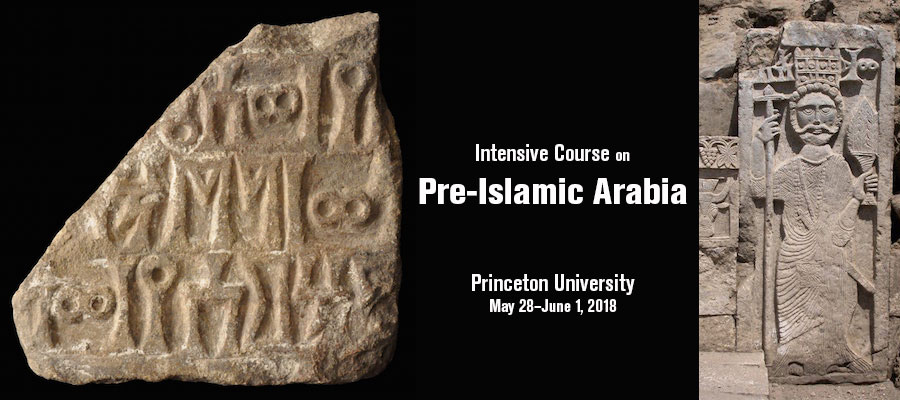Intensive Course on Pre-Islamic Arabia, Princeton University, May 28–June 1, 2018
Thanks to a number of generous grants from the David A. Gardner '69 Magic Project, the Department of Near Eastern Studies at Princeton University has organized a series of short, intensive courses for graduate students on a variety of subjects in the broad field of Islamic studies not normally covered in the Princeton curriculum. In each case, an internationally-recognized expert has been brought in to teach the course over a period of five weekdays.
This year, we plan to offer such a course on Pre-Islamic Arabia.
The course will take place from May 28 - June 1, 2018. The course is intended primarily for graduate students, both from Princeton and from other universities.
The instructor will be Professor Christian Robin, a leading expert in the study of pre-Islamic Arabia. The objective of the program is to present the state of knowledge about ancient Arabia until the time of Muḥammad. Archaeological excavations and innumerable epigraphic discoveries have profoundly renewed the question in recent decades.
The program will have three objectives:
- Give students access to the main source of information about Pre-Islamic Arabia, namely epigraphic texts. Two days will be devoted to the scriptures and languages used in ancient Arabia (especially those of Sabaʾ, Maʿīn, Qatabān, Ḥaḍramawt, Nagrān, Qaryat, Hagar, Dedān and Taymāʾ, plus those of the desert populations) and those of the 5th and 6th century of the Christian era (with the appearance of Arabic writing which can be interpreted as a rejection of Ḥimyar).
- Summarize what is known about the history and institutions of the main kingdoms of ancient Arabia, with a focus on dating issues and the emergence of so-called “Arab” populations from the beginning of the Christian era.
- Present the political, religious and cultural situation in Arabia of the 5th and 6th centuries, on the eve of Islam, with a kingdom of Ḥimyar (Jewish, then Christian) which dominates the whole of the peninsula, and to highlight certain continuities between antiquity and the first Islam.
The course is free. Students accepted for the course but coming from outside of Princeton will receive partial scholarships to help defray travel and accommodation costs.
